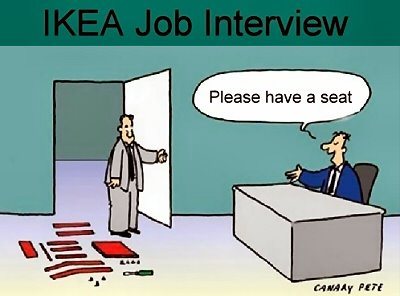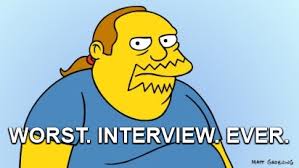Important questions to ask on an interview
As some my friends and family have been looking for better opportunities, I’ve found myself speaking about relevant 21st Century interview questions to ensure expectations are clear, and the position is a fit for all parties. My career started in executive search and corporate recruiting on Wall Street.
This experience ignited my lifelong passion for understanding why organizations make hiring decisions, how interviewing processes work, and what practices yield ideal results.
I stridently believe that asking the right questions on an interview yields the greatest long-term career happiness and productivity.
My desire is that you find as close to the perfect fit in your career as possible. It’s important that interviews focus on bilateral communication. While these questions are for candidates, I believe hiring managers will also find them helpful. Let’s jump right in.
Never be afraid to ask critical questions as this is your career and your life.
Why is this position available?
Few people ask this critical question on an interview, and fewer hiring managers or human resource professionals discuss this. I believe it’s important to know why the opportunity exists. Perhaps someone was “let go.” If so, was it a “performance issue?”
In this scenario, it’s vital to understand why the previous person did not work out. What were the expectations for the role and how did that person fail to meet those expectations?
Never presume. You don’t want to be in the same situation as the previous person, especially if that person was let go because the manager, supervisor, etc. was unclear in explaining their needs.
If the role is new, how will your success be measured?
If it’s a new position, why was it created?
Is this opportunity an addition due to growth in this particular department? Is the organization expanding? Has a line of reporting been clearly established? To whom will you be reporting and do you have an opportunity to meet this person?
Few things are more frustrating than seeing anyone fail to meet expectations that were never clearly delineated; therefore, be sure you understand why this opportunity exists.
Additionally, I would not accept any job offer without meeting the person you will be reporting to face to face, save global pandemics and remote only positions.
How is performance determined in this role?
Few people discuss this in interviews, and it’s seldom expounded on by human resources. How can you be effective if you don’t know how success is measured? You can’t; it’s that simple.
Ask as many questions as it takes to understand how performance is measured, because this is the manner in which your future is determined. If you cannot ascertain a clear path to your success, I would urge you to continue your search for the right opportunity.
If success is determined in an arbitrary manner, it’s nearly impossible to know what the organization wants from you so you can meet, and exceed, their needs.
If a hiring manager cannot clearly define performance and success, I choose to pass on the opportunity no matter how tempting it may seem.
Why am I so adamant? I believe this is the perfect setup to fail no matter how hard one works, which is unfair to both the organization and myself.

Why did you choose to interview me?
This question may seem counterintuitive at first. You’re already on an interview, why does it matter? True, you may be interviewing, but you do not have an offer yet.
It’s important to understand why the hiring manager, human resources, or both believe you are an ideal candidate.
Today, it’s not unusual to be a candidate because of one word on your résumé or worse yet, a preconceived notion that a particular school or company you’ve attended or worked with automatically makes you an ideal candidate.
Your career is too important to take a chance on a better opportunity, only to find that perceptions have created expectations above or below your career goals.
If you do not get a clear answer as to why you are a candidate, I will caution anyone that you might be dealing with a lazy hiring process. To me, this is indicative of the organization’s management style in general.
This management style personifies a challenging environment for you to thrive.
What am I expected to accomplish in my first thirty days, first six months, and first year?
Unfortunately, I’ve seen many people end up in jobs because they believed they knew what the expectations and goals of the role are. It’s important to ask enough questions before accepting an offer.
Tangent to this issue is making sure you know what the hourly requirements are. Be certain you understand expectations in both the short-term and long-term.
While nothing is certain in life, it’s better to know as much up front as possible.
If the hiring manager is saying the role will range from a fifty to seventy hours a week commitment, it’s likely the higher number is true.
What about Technical positions?
If you’re a technical professional like a developer, engineer, designer, or similar, make sure you know what development environments, or tools, you will utilize.
If the hiring manager is promising to use newer, more efficient, tools, probe with more questions. Here are some examples:
- May I please see a schedule of the planned rollout?
- Who is in charge of the rollout, and are they reporting directly to you?
- If I am in consideration for the role, may I meet the individual responsible for implementing the changes?
Too many technical professionals end up in jobs with a false promise of working with new technologies. Be completely satisfied that the hiring manager has a concrete plan to use said tools.
What is your career happiness worth to you?
Interview as much as it takes to find the right opportunity, otherwise you may be stuck doing something that does not excite you now or in the future. People change jobs for many reasons.
While not easy to do, the benefits of waking up every day and working on something you love and in the right environment are priceless. Never settle.
Ask as many questions as it takes to feel totally comfortable with a new position.
If those answers are not satisfactory to your career goals, don’t be afraid to keep looking. No question is out of place or wrong to ask as long as you conduct yourself professionally. It’s your career and future.
I believe what separates folks that thrive in their selected career, is a relentless drive to find organizations which share their passions and beliefs.

We want the opposite of this!




